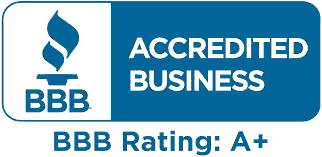What Does My Credit Score Mean?
Do you know what your credit score means? Really, do you? You may want to make sure you are perfectly clear on that, because The Consumer Federation of America reported in September of 2004 that of 1,000 Americans they surveyed, only one third understood that their credit score measured their likeliness to pay off a loan. Today, more and more businesses are checking credit scores as a way to assess risk. Credit scores are imperative to qualifying for a mortgage, and a bad credit score can even prevent you from getting basic services such as a phone line. To be a wise consumer, it is important that you know your score and what it means to you, since it has a large influence on your life.
A credit score is sort of like your adult version of a report card. It tracks your performance in incurring debt and paying your bills on time. You want a high score, because it shows that you are responsible about your finances and can be trusted to repay loans. High scores can get you lower interest rates on credit cards and mortgages. But these days your credit score may be evaluated for many other reasons, from applying for a new apartment, making deposits on utilities, to getting a new job.
Businesses are using credit scores as a sort of background check. A credit score can’t say for sure whether someone is a good customer or a bad customer, but it can give creditors and businesses some idea of what your credit behavior is like. And each creditor may have different models of evaluation, some placing more significance on certain factors than others.
How can I find out my score?
Lenders often get their scores from the three main credit reporting agencies:
- Equifax. P.O. Box 740241, Atlanta, GA 30374-0241; (800) 685-1111.
- Experian. P.O. Box 2002, Allen, TX 75013; (888) (397-3742).
- Trans Union. P.O. Box 1000, Chester, PA 19022; (800) 916-8800.
For a small fee from between $10 to $40, you can apply to receive your credit score from one of these agencies.
If you’ve been denied credit in the last 60 days, the credit reporting agency that was used must provide you with a free copy of your credit report. You can request this report online at several of the agencies, or you may need to call. You are also legally entitled to one free report per year if you are on welfare, if you are unemployed, or if your report is inaccurate due to fraud. There is a new federal law that goes into affect on December 1, 2004 that allows people who are applying for mortgages to get their score free from their lenders.
Annualcreditreport.com will give you access to a free credit report every year from each of the three major credit reporting companies. Access to these free reports has been mandated by the Fair and Accurate Credit Transactions Act which was put into effect in 2005.
How is my score calculated?
Your score may be different at each credit reporting agency, since the information they have on you may differ, or the statistical pool they are drawing from may be different. But they all use the same software to generate your score. You may hear your credit score referred to as a FICO score. That is because most scores are determined using software developed by Fair Isaac and Company.
What determines my score?
Your credit score is not concrete. It ebbs and flows like the tide, changing whenever you pay a bill on time or late, apply for new credit card or take out a loan. Your score is based on your credit history, and it attempts to predict what your credit behavior will be like in the future.
The calculations for your credit score are based on statistical data and are objective evaluations. You get points based on various credit factors. A creditor takes all of the information on your credit report, compares it to the statistics of people with similar profiles, and grants you points based on factors that predict creditworthiness such as outstanding debt, payment history, late payments, or the age of your accounts. Your total number of points reflects how reliable you are–how your past behavior suggests how likely you are to pay back a loan or pay your bills on time.
What should I do if I’m denied credit?
If you apply and are denied credit due to a low credit score, you have the legal right to be told by your creditor exactly why you were denied. Reasons for this could range from having too much outstanding debt, having too many open credit accounts to a balance that is too close to your credit limit.
You are also legally entitled to a free copy of your credit report from the credit-reporting agency that was used. Request this copy. It may take a while to arrive, but once you get it, take the time study it, find out what factors are weakening your credit and work to improve on them.
How do I improve my score?
The number one way to make sure you have a good score is to pay your bills ON TIME.
You should also:
- Reduce any outstanding debt.
- Stop applying for new credit.
- Try not to add any new balances.
- Avoid having creditors check your credit report too often (each credit check done by a creditor will adversely affect your score).
- Choose to keep one or two credit cards that you’ve had the longest. Cancel the rest.
- Hang in there. A long credit history is better than short one.
It may take some time to see the positive changes in your score, but it will go up over time if you work on it.
What if there is something wrong on my report?
Dispute it. If your report is inaccurate, you should dispute the inaccurate information. In many cases you can do this online at the credit reporting agency’s website. The credit reporting agency is required by law to investigate all disputes, and the entity that reported the information must respond to the dispute within a limited time to prove that the data in the report is correct.
If the dispute does not result in your favor, you should add a permanent statement to your credit report explaining the nature of the dispute and identifying the inaccurate information. The credit reporting agency is required by law to include this statement in your report.
You can find more information about how to dispute information in your credit report at the Federal Trade Commission Website.
What is the best score?
If you have a 760 or above, consider that an “A” on your credit report. You will get the best credit rates. Above 700, a “B”. Between 600 and 700, a “C”. Below 600 is a big “D” or even an “F” and you will almost surely have to pay higher interest rates with a grade like that.
Is my score fair?
The Equal Credit Opportunity Act stipulates that characteristics such as race, sex, ethnicity, and religion cannot be used as factors in determining a credit score.
What is the difference between a credit report and a credit score?
In keeping with the report card theme, a credit report is like your transcript, while your credit score is your GPA. The instant credit you receive at stores is based on credit scores. A mortgage or large loan will be based on your credit report as well as your scores.
These days, your credit score may be evaluated for everything from applying for a lease to getting a new job. It is becoming a major assessment factor in many of your financial and lifestyle decisions, so it is important that you know the answer to the question: what does my credit score mean? And how yours is affecting you. You can improve your credit score, and therefore improve your perceived creditworthiness, which can get you lower interest rates. Paying your bills on time pays off in more ways than you think.

 We offer FREE Debt Counseling. Get answers to lower or eliminate your debts.
We offer FREE Debt Counseling. Get answers to lower or eliminate your debts.
